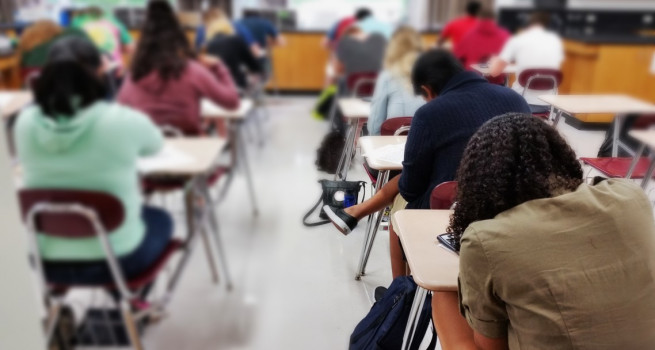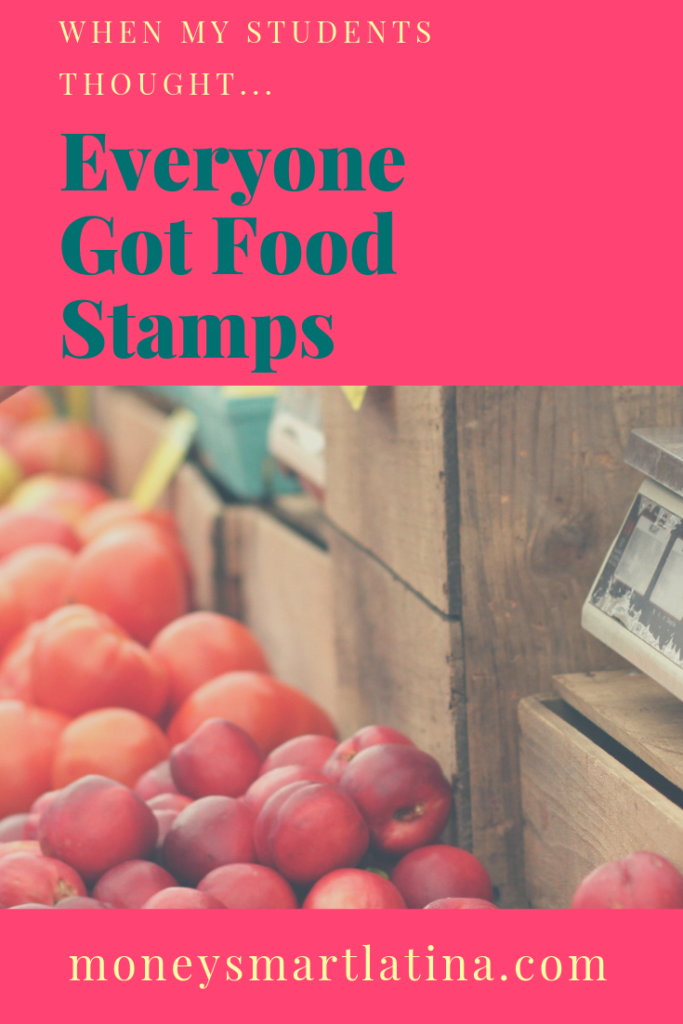
Life is funny and our path to success is never direct. Which is probably why became a teacher in my late twenties and ended up going into education. I never pictured myself being a teacher, especially a junior high one. Despite never seeing myself as a teacher, I was actually very good at it. I still miss it so anytime I get to go into a classroom, my cup gets full.
As part of the curriculum I was teaching, I was ecstatic to see a personal finance section. I had already been blogging off and on about my own finances for years at this point, so I was pumped to show my kids what was up with a budget. When we were doing that unit’s pretest, my kids stumped me. My 8th graders who were 14 at the time, I might add.
One of the questions gave a list of scenarios and then asked the student to identify which one was false. I don’t remember what the answer was but I remember one of the statements being “food is taxable” and my students asking me about it. As I was trying to come up with an easy to understand explanation in my head (prepared food is taxed in AZ, unprepared food isn’t), my student yelled, “NEVER MIND!” “Great! How did you come up with the answer?!” I asked my student. They were a bright cookie, especially thinking of it a lot quicker than I could on the spot. “Miss Lent,” they answered, “you don’t pay tax with your EBT card.”
An Electronic Benefits Transfer card or “EBT” is how SNAP benefits are commonly distributed for those who receive government assistance to purchase food. While every state has different requirements for eligibility, SNAP benefits are the most common type of assistance received, by individuals and families alike. Since our school had a 93% below poverty rate for their students, EBT cards seemed to be common knowledge.
“I don’t get food stamps. Do I still pay tax on food?” I asked my student. My student looked at me confused and then asked, “Miss, how do you buy food?” Startled, I replied quickly, “With my debit card. I make too much money for food stamps.” Several of my students turned around to join what later turned into a classroom discussion about how Miss Lent bought food.
My students were honestly blown away by the fact I didn’t buy food with food stamps. They asked me repeatedly if I had to shop at a special store to use my debit card. They inquired if I had always used a debit card to buy food. They told me I didn’t get food stamps because I didn’t have a baby. They really just wanted to know why all of them had one and I did not. Because they truly believed EBT cards were the only currency you could use when purchasing food.
It was because of this interaction I started Money Smart Latina. I was tired of there not being a lot of personal finance bloggers who looked like me and more tired of a lot of people not understanding where underserved communities came from, both mentally, physically and emotionally. There are people who for some reason make it their personal mission statement to be offended by people who are poor. Who yell about bootstraps. Who can’t believe there was an entire classroom of fourteen-year-olds who thought everyone bought food with EBT cards and was worried about their teacher not eating.
I think Financial Literacy Month is a great time promote financial literacy and education, which is why I’m happy to partner with the Plutus Foundation this year for their Plutus Voices event, Inspiring Action in Underserved Communities. I’ll be speaking about financial resiliency and how to speak to your audience, not talk down to them.
I don’t want another classroom of eighth graders who look like me to think that everyone buys food with food stamps. I want them to know that their demographics do not determine their destiny and they can get out. That their parents are trying, so take advantage of all the opportunities they have through their education. I want them simply that they just “can.”



3 Comments
Tread Lightly, Retire Early
This is such a powerful story. And why simply “just Google it!” / “the information is there if you want it!” Isn’t nearly good enough.
Nate Matherson
Woah, this is an incredible post and story! And thank you for the amazing work that it sounds like you are doing with this group of students.
I totally agree, financial literacy is so important. It amazes me that financial literacy classes aren’t required at the high school level. Moreover, too many students leave college without ever really digging into their finances.
The Frugal Engineers
I grew up on food stamps before EBT cards existed, and three teen moms in my family meant WIC vouchers were common currency for us too. I’m glad to have that perspective now. Early in my career I tried to take a colleague to Goodwill to help furnish her new apartment, and she stopped me in the parking lot and said “I thought only poor people are allowed to shop here”. So the misinformation is not just among low income kids either. Good post!